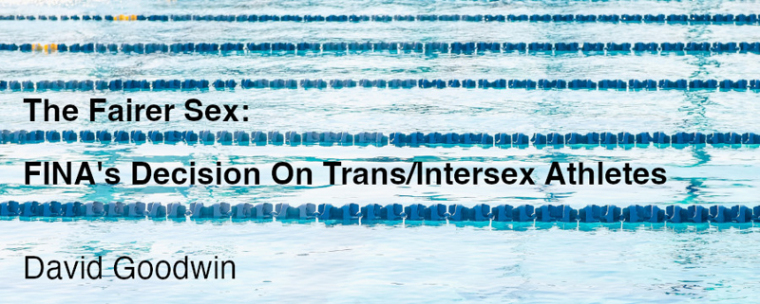
Over the past few years, one of the more polarising issues that has engulfed the sporting world is how to treat transgender and intersex athletes in a way that stays true to the foundational values of fairness and inclusiveness, even when they seem mutually exclusive.
There’s been a reluctance on the part of many of the governing bodies of sports all around the world to articulate a firm position. Some working on a case-by-case basis leaves plenty of wriggle room. Others using the excuse that they are waiting for science to catch up to delay a decision. And a few who simply ignore the issue and hope that it is never something their sport needs to worry about.
Ask not for whom the bell tolls
But, in a changing world, it is really only a matter of time before the first transgender or intersex athletes wants to compete in even the most esoteric sport. Those who run it need to decide what they are going to do about it. Really, it shouldn't wait until then, no one deserves to be a test case, their desire to participate weighed up and judged in the public eye. With power comes comes responsibility, and those in authority have a duty to make the hard decisions, and not handball them on...so to speak.
The latest sporting body to announce its position is FINA (Fédération Internationale de Natation), the international federation recognised by the International Olympic Committee as administering international competitions in water sports. This announcing has been impending for a while now, after the success of transgender athlete Lia Thomas in American college swimming sparked debate over the fairness of racing athletes who went through male puberty and whether it disadvantaged other female athletes.
No Man’s Land is the Loneliest of Places
FINA have essentially created a third category of competition that is open to everyone, but will exclude female swimmers who went through male puberty from the female competition. FINA explained their decision as an attempt to ensure that no one who wanted to participate in the sport would be excluded, but ensuring fairness for female swimmers. Like all good compromises, it is likely to leave everyone unhappy, with some people attacking it for failing to be inclusive enough and others thinking it doesn’t go far enough.
But, whatever you think of FINA’s position and whether they got it right or wrong—and that is a debate I definitely have no interest in getting involved in—I think that they deserve far more praise than commendation. Firstly, because they saw that the sport needed them to take a position on the issue and, even though they would have been aware that they would come under criticism no matter what they did, they didn’t abdicate their responsibility to show leadership. The IOC could learn a thing or two from them, and actually give their sporting partners some guidance instead of leaving them to sink or swim in a sea of warm and fuzzy platitudes.
Secondly, whether they have got the balance right or not, it seems clear to me that this statement comes from a genuine desire to find the best possible solution for everyone. They seem determined to make sure that no one feels unheard or forgotten, and that their concerns have at least been heard. They also seem at pains to stress that they want to find a way to include everyone, and that they want people to know that they are welcome.
Levelling the Playing Field
But, what impressed me the most is the fact they seemed to have realised that sometimes there is no perfect balance to be found between inclusiveness and fairness, and that if we do want everyone to get a fair go we need to sacrifice inclusiveness. It’s not because we don't want everyone to be included, it’s because we want to make sure everyone has the same chance.
It’s why we have age groups in sports, so 8-year-olds aren’t playing against grownups. It’s why we separate professional and amateur athletes, or don't let international cricketers just turn up at a club side and play in the finals. It’s why we have weight divisions in boxing, or handicaps for horses.
Gotta be in it to win it
It’s not about dividing people, or holding them back, it’s about making sure that everyone gets a go and that including on person doesn't mean excluding another. I’m not saying FINA have got it right, or that I know the answer to this particular issue, but the only way to get where we need to be is if people are willing to try and find a way. This is a good start, and they deserve our support.

David Goodwin is the former Editor of The Salvation Army’s magazine,War Cry. He is also a cricket tragic, and an unapologetic geek.
David Goodwin archive of articles may be viewed at http://www.pressserviceinternational.org/david-goodwin.html